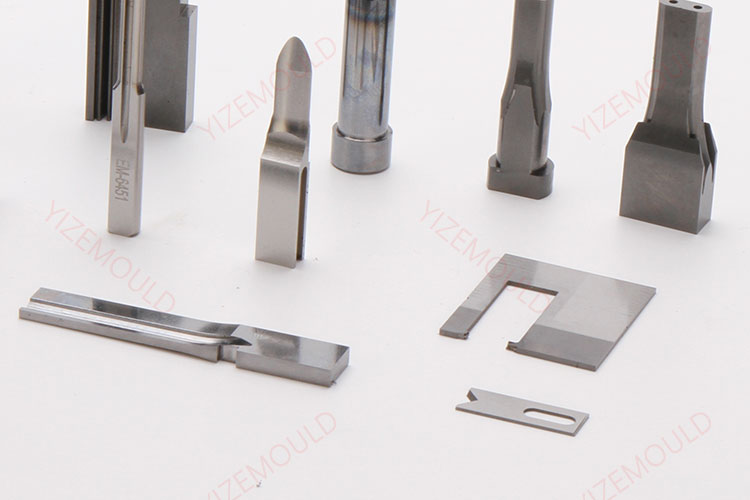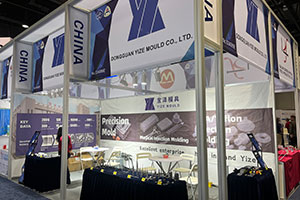Can carbide cut metal?
Cemented carbide can cut common metals and metals with lower hardness than cemented carbide. Common metals include iron, steel, aluminum, copper, zinc, nickel, and titanium alloys. Below is the cutting […]
Cemented carbide can cut common metals and metals with lower hardness than cemented carbide. Common metals include iron, steel, aluminum, copper, zinc, nickel, and titanium alloys. Below is the cutting capability of cemented carbide for these metals:
-
Iron
Cemented carbide has excellent performance in cutting iron. Iron is a common metal with high hardness and strength. Cemented carbide tools can effectively cut iron materials, including ordinary carbon steel and alloy steel. Cutting iron materials is widely used in fields such as construction, mechanical manufacturing, and automotive industry.
Our factory business: carbide parts, mold parts, medical injection molds, precision injection molds, teflon PFA injection molding, PFA tube fittings. email: [email protected],whatsapp:+8613302615729.
- Steel
Steel is an alloy composed primarily of iron and carbon, with the addition of other alloying elements. Cemented carbide tools also perform well in cutting steel. Steel has high hardness and strength, but cemented carbide tools can effectively handle these characteristics and achieve efficient cutting. Steel is widely used in construction, manufacturing, aerospace, and other industries. Similarly, cemented carbide can be used to cut mold parts.
- Aluminum
Aluminum is a lightweight metal with good thermal and electrical conductivity but relatively low hardness. Cemented carbide tools can cut aluminum materials with high efficiency and precision. Aluminum finds wide applications in aerospace, automotive manufacturing, and electronics industry.
- Copper
Copper is an excellent conductor of electricity with good thermal conductivity and malleability. Cemented carbide tools perform well in cutting copper materials. Copper is commonly used in electrical engineering, pipe manufacturing, and decorative arts, and the cutting capability of cemented carbide tools can meet the requirements of these applications.
- Zinc
Zinc is a common metal with good corrosion resistance and malleability. Cemented carbide tools are suitable for cutting zinc materials, including zinc alloys. Zinc materials are widely used in construction, automotive manufacturing, and electronics industry, and the cutting capability of cemented carbide tools can meet the requirements of these applications.
- Nickel
Nickel is a hard metal with good corrosion resistance and high-temperature strength. Cemented carbide tools have certain capabilities in cutting nickel materials. However, due to the high hardness of nickel alloys, cemented carbide tools may wear out quickly when cutting nickel alloys, resulting in low processing efficiency. In such cases, CBN blades and PCD blades can be used.
- Titanium Alloys
Titanium alloys are lightweight and high-strength metal materials with good corrosion resistance and high-temperature strength. Cemented carbide tools have certain capabilities in cutting titanium alloys. Titanium alloys have wide applications in aerospace, medical devices, automotive industry, and other fields. Due to the high hardness and strength of titanium alloys, the cutting process is relatively challenging, but cemented carbide tools can handle this challenge and achieve effective cutting and processing.

Cemented carbide performs well in cutting metals. For common metals such as iron, steel, aluminum, copper, zinc, nickel, and titanium alloys, cemented carbide tools can provide efficient and precise cutting capabilities. By selecting suitable cemented carbide tools and using cutting techniques properly, efficient processing and production of metal materials can be achieved. Generally, the cutting capability of cemented carbide in cutting metals still requires the selection of appropriate tools and cutting parameters based on specific conditions.
Related Posts
- Unveiling the Key Factors Affecting the Lifespan of Tungsten Carbide Bushings
- Tungsten Carbide Punch Maintenance Tips: The Essential Guide to Extending Lifespan
- Comprehensive Analysis of Tungsten Carbide Machining Advantages
- Key Considerations for Using Tungsten Carbide Parts: What You Need to Know!






